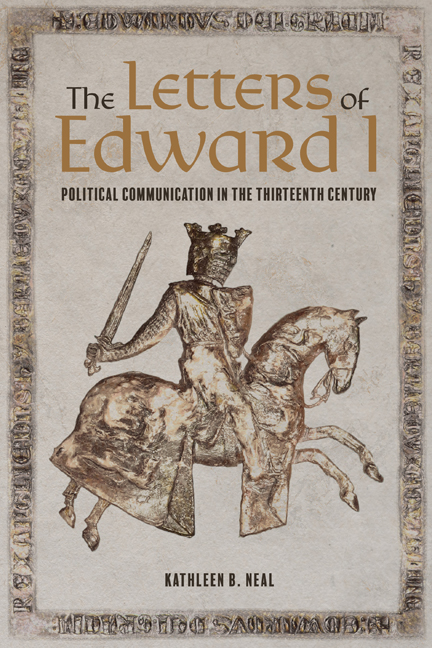Book contents
- Frontmatter
- Dedication
- Contents
- List of Illustrations
- Preface
- Abbreviations
- Introduction: Letters and the Language of Power
- 1 Royal Letters: The Authority of a Form
- 2 Rhetorical Refinement: Epistolary Editing and its Implications
- 3 Announcing the Message: Communities of Reception and Royal Ideology
- 4 ‘Dear Cousin’: Affect and Epistolarity beyond Borders
- 5 Keeping Friends Close: Strategies of Epistolary Alignment
- 6 Rhetoric Under Strain: Re-writing Royal Epistolarity
- Conclusion. Royal Epistolarity: The Voice of the King
- Appendix
- Bibliography
- Acknowledgements
- Index
2 - Rhetorical Refinement: Epistolary Editing and its Implications
Published online by Cambridge University Press: 09 February 2021
- Frontmatter
- Dedication
- Contents
- List of Illustrations
- Preface
- Abbreviations
- Introduction: Letters and the Language of Power
- 1 Royal Letters: The Authority of a Form
- 2 Rhetorical Refinement: Epistolary Editing and its Implications
- 3 Announcing the Message: Communities of Reception and Royal Ideology
- 4 ‘Dear Cousin’: Affect and Epistolarity beyond Borders
- 5 Keeping Friends Close: Strategies of Epistolary Alignment
- 6 Rhetoric Under Strain: Re-writing Royal Epistolarity
- Conclusion. Royal Epistolarity: The Voice of the King
- Appendix
- Bibliography
- Acknowledgements
- Index
Summary
The converging signifiers of authority in Edward's royal letters meant that all the king's epistolary utterances were freighted with potential legal, social, and political or diplomatic significance. In particular it was essential, as Master William of Sarden warned the king, to avoid any potential for his words to be used against him. The rules of dictamen, the template of the writ, and the experience of the king's clerks provided ample models for framing letters in ways that observed traditional forms, but the precise expression of content still needed to be tailored carefully to its context. The processes of production of Edward's correspondence systematized the oversight of drafting, and facilitated editing by senior clerks where potential problems occurred, a process to which the king himself was sometimes a party. Corrected drafts highlight those matters that were deemed to be of importance, sometimes revealing a multi-stage process of suggested corrections before the final text was agreed.
The evidence of careful, even obsessive editing of epistolary language evident in Edward's draft correspondence shows that manipulation of political language was a close concern of government in this period. Even while forms and formulae associated with authority set the limits of appropriate epistolarity, within these bounds royal rhetoric was deliberate, strategic and minutely managed according to the king's legal, political and diplomatic goals.
King, clerks and correction processes
Writing was a technical skill that medieval elites devolved to professionals where possible. The autograph letter had yet to assume its status as an act of special favour and intimacy in politics. Processes of medieval epistolary production were therefore inherently collaborative. Even in relatively simple scriptoria, while the sender retained the status of author or ‘authority’ (auctor), the end product represented their composition (compositio) transferred to a scribe orally through dictation (dictatio), and transmitted into final written form by inscription (inscriptio) performed by the same or another scribe working from notes.
Both the number and geographical distribution of offices producing royal letters and the volume of their work, however, far outstripped the supervisory capacity of any single ‘auctor’. Michael Clanchy evocatively demonstrated the increasing workload of Henry III's English chancery by charting a ten-fold increase in its consumption of sealing wax between 1226–30 and 1265–71.
- Type
- Chapter
- Information
- The Letters of Edward IPolitical Communication in the Thirteenth Century, pp. 50 - 74Publisher: Boydell & BrewerPrint publication year: 2021



